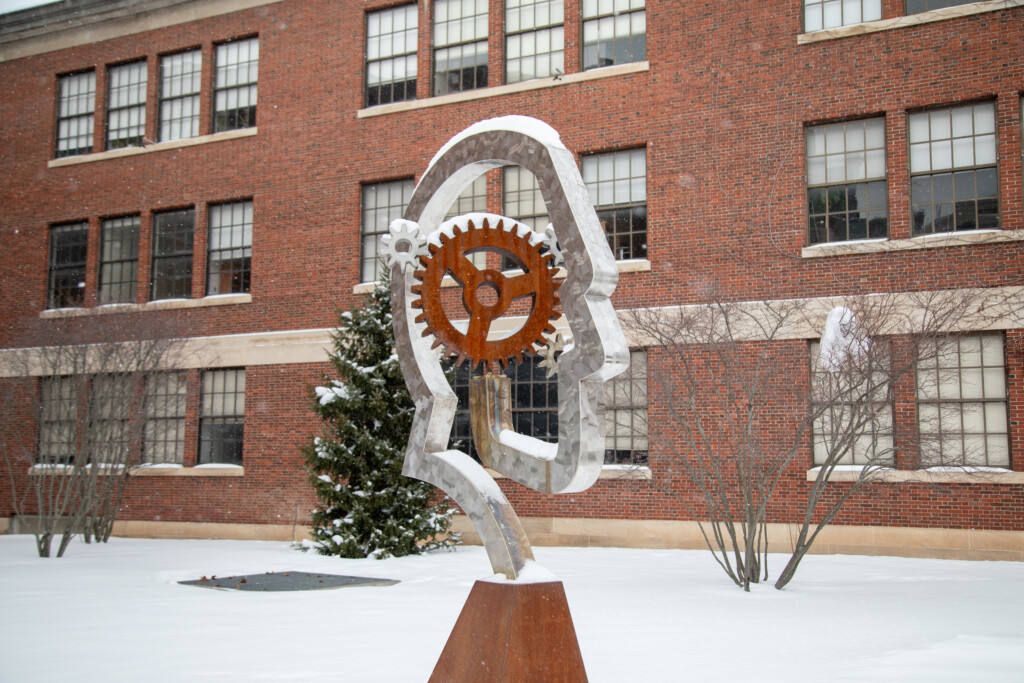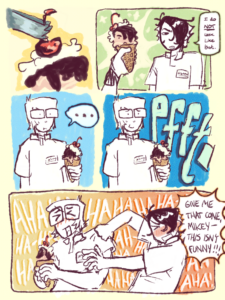When I listen to Ryan Beatty’s recent album “Boy in Jeans,” I feel like back I’m in high school — sexually repressed, spending summer in suburgatory with my undiagnosed mental illness and maybe one or two friends in their backyard pool.
“Boy in Jeans” is Beatty’s queer, pop, R&B dream, completely different from the sugary sweet teen heartthrob he was marketed to be in 2011. Back then, the 16-year-old artist was recording Bruno Mars covers on Youtube and getting asked about girls in interviews.
Now, his Twitter bio reads plainly, “child star,” and his first page Google results show a Teen Vogue article, detailing Beatty’s coming out on Instagram in 2016, when he blissfully declared, “now I can breathe.”
“Boy in Jeans” is a work of exhalation, but I want to think of it as a pool. We enter carefully at first, then dive completely under with “Haircut,” a rolling, euphoric solidification of self. Beatty can “feel the closure / I finally feel like me again / … it starts right now.” And so it starts.
Isn’t everything sweetest at the start? It gets a little harder to breathe in the water, and it’s suddenly more difficult to open your eyes when you’re underneath with “Euro,” a late night drive, sultry R&B with a reverberating Beatty asserting all his “boys European / all my money is gone,” but “I’m not suicidal, I’m too afraid to die.”
The tension “Euro” begins doesn’t get resolved, it gets molded. The song fades out with distorted, distant voices, a car engine running somewhere that sounds far away. The car turns off, and Beatty, masked with effects, starts singing “Cupid.”
“Press your lips against my neck / with me you don’t pretend like with your girlfriend.” He wants something he can’t have, but, God, does he want it.
Beatty doesn’t start singing without effects until the bridge, a multilayered harmony with both versions of himself asking “What do you want from me? / What do you want from me?”
Beatty has always known what he wants. We’re transported to a school dance in “Bruise,” that, aptly named, hurts a little. It stomps on gently, and builds as the kick drum hits.
“I went to the dance with my high school girlfriend / left from a dance without my high school girlfriend.” In between choruses, we get Beatty’s voice, lowered with effects and unapologetically rumbling, “So she’s out there slow dancing to the song / and we’re in the boy’s bathroom, making out. Yeah.”
There’s something sacred and lonely about being gay in suburbia. There’s the version of yourself you’re supposed to be among green lawns and white neighbors, where the person you see in your head before you go to sleep can only “ride on me / in my dreams, in my fucking dreams.”
And they stay in your dreams. And all your days are the same.
“Camo print depression,” sings Beatty. “I keep my feelings hidden / I’m not used to winning / but that’s life.” “Camo” is a tropical trap resignation. It sounds like going to the same pizza place with your friends every weekend because there’s nowhere else to go.
So you learn how to skate so the moms in your neighborhood know that you’re sad inside, but also appreciate visual aesthetics.
“Powerslide” is the feeling you get when you skate down your local hill and don’t fall off. It’s groovy and so, so happy when “suburbian royalty” gives Beatty “pleasure underneath the water / and it felt so good.”
“Boy in Jeans” is its most triumphant and in moments of pleasure, physical and otherwise. (“God is real / he was sleeping in my bed last night,” “It’s good to get to know you / … do you do speed?”) And then you come down from a small piece of self-understanding, and you’re the same, still in the same place.
Beatty ends with “Rhinestone,” a sexy, wavy hope for more. “There’s so much more to see out there / You’ll agree / it’s better when you’re right next to me.”
This album is for all the queer kids who couldn’t come out in suburbia. We’re not in high school anymore.


